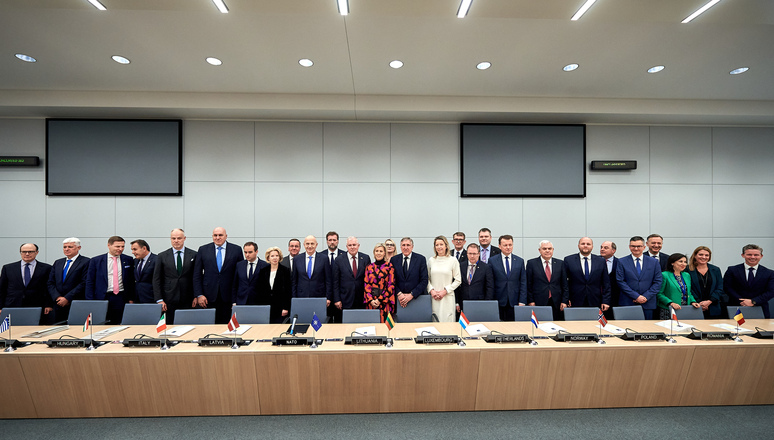Allies and invitees join forces to develop NATO’s future capabilities
Ministers from 25 Allied nations, plus Finland and Sweden, came together today (15 February 2023) to sign new major commitments to jointly develop and procure systems securing NATO’s access to cutting edge technology. Progress is being made in a range of areas, including Ground-based Air Defence, Chemical, Biological, Radiological and Nuclear Defence, and Mobility/ Counter Mobility.

Three Mobility and Counter-Mobility projects were launched as part of this effort. There, the 12 participants agreed to work on acquiring a variety of tools to ensure NATO’s ability to ensure mobility on all terrains, including military bridging capabilities, solutions to connect existing bridging assets, vehicles in support of military engineering work, as well as counter-mobility assets.
In another initiative, ten Allies took the next step towards developing a modular solution for Very Short, Short and Medium Range Ground Based Air Defence (GBAD), by launching the Modular GBAD Concept Stage valued at 20 million euros.
As part of another project, four participating nations will connect various Chemical, Biological, Radiological and Nuclear defence facilities within a single architecture. This will make CBRN defence capabilities more widely available across the Alliance.
Eight new participants have joined the Multinational Ammunition Warehousing Initiative, which marks a fundamental change in the way Allies manage the storage of munition stockpiles. The project is critical for the prepositioning of munitions in support of NATO’s expanded multinational battlegroups on the eastern flank.
The initial Allied Future Surveillance Capability effort also took shape; it aims to deliver a new solution by the time the current NATO E3 AWACS fleet retires in 2035.
